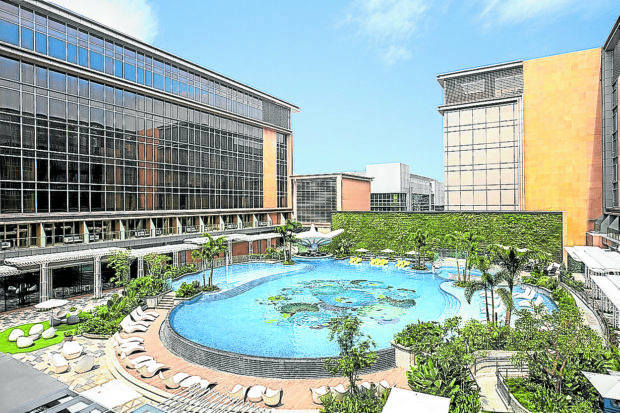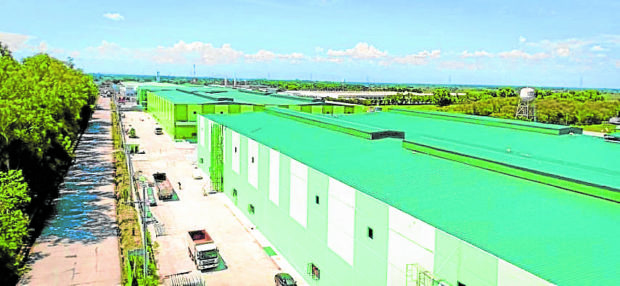
We are seeing some optimistic news about our economy and the global fight against COVID-19. There is some glimmer of hope and we are optimistic that this trend will also have a positive impact on Philippine property even beyond the pandemic. Both the Philippine economy and property sector have strong legs to stand on. And as data from Colliers Philippines would indicate, the property market bounces back after global economic meltdowns.
Leisure sector to continue reeling from the pandemic
The Philippine leisure sector continues to suffer from the COVID-19 pandemic and imposition of travel restrictions. Like other property markets, the hotel segment is likely to suffer from delayed completion of new projects as developers factor in a sluggish recovery.
Data from the Department of Tourism (DOT) showed that tourist arrivals declined by 81 percent to only 1.32 million in the first 10 months of 2020 due to the travel bans. Tourist receipts also plunged by 80 percent to P81.05 billion for the same period, from P398.93 billion a year ago.
Over the next 12 months, we project foreign arrivals to remain muted as tourists are likely to remain wary of traveling until a vaccine is rolled out. We see this having an impact on hotel occupancy and average daily rates.
In the first half of 2020, Colliers saw hotel occupancy in Metro Manila dropping to 25 percent from 71 percent in the second half 2019, due to the global travel restrictions. Most of the hotel guests during the lockdown were returning overseas Filipino workers (OFWs), health workers and professionals whose daily commute was limited by the suspension of mass transportation in the capital region.
From 2020 to 2022, we see the completion of about 6,100 rooms with new supply likely to pick up next year. We project occupancy rates to recover in 2021 yet remain at sub-50 percent levels given the likely subdued foreign arrivals and substantial new supply. Hence, we see ADRs slowly recovering by about 5 percent in 2021 from the projected 30 percent drop in 2020. The recovery should be supported by DOT’s aggressive domestic tourism campaign and the implementation of travel corridors among COVID-19 free countries in Asia.

Colliers believes that hotel operators should be more agile, consider other leasing models and repurpose spaces into co-living facilities and flexible workspaces. The pandemic also highlighted the need for hotel operators to roll out innovative services that could enhance customer experience using modern technology, such as keyless check-ins, smart room controls and 24/7 mobile connectivity.
Developers to seize opportunities in logistics
As more consumers shift to online shopping, we expect retailers to adopt an omni-channel approach. Mall operators and retailers will likely firm up partnerships with logistics firms and warehouse developers to reach last mile deliveries.
Colliers expects the healthy demand for warehouses being sustained by an economy that is primarily household spending-driven. We see developers tapping into the sector’s potential growth as shown by rising storage investments in the country. Data from the Philippine Statistics Authority (PSA) showed that transportation and storage accounted for 33 percent or P14.8 billion of total approved foreign investments in the first half of 2020—an all-time high.
Developers should maximize opportunities by modernizing warehouses, building more cold storage facilities, exploring co-working and flexible warehousing, and converting vacant mall and office spaces into fulfillment centers. Some have already announced their plans to convert certain retail spaces into micro-warehouses. Demand for these facilities will likely be driven by tenants shifting to e-commerce. Potential locations for these facilities include Quezon City, Manila, Pasig, Makati, Pasay, Muntinlupa and Marikina.
We estimate that around 73,600 sqm of total warehouse supply is available in Pampanga, lower than our estimate of 816,100 sqm in the Cavite-Laguna-Batangas (CALABA) corridor. More than half of the supply is still located in Metro Manila at around 825,800 sqm. Starting this fourth quarter, we estimate that around 179,800 sqm of leasable warehouse space will likely be offered in Metro Manila.
Cebu office vacancy to peak in 2021
In 2021, we see Metro Cebu office vacancy rising to 18 percent as more office spaces are being vacated by outsourcing firms and providers of English as a Second Language (ESL) services that have been closing or downsizing office space requirements. Despite this, Colliers sees a faster pace of recovery in major hubs such as Cebu IT and business parks once market sentiment improves.
Colliers also sees new office completions in 2021 for Metro Cebu rising by 206 percent to 114,100 sqm. These include offices that were deferred in 2020. We project the downward pressure on rents to continue until 2021. In our view, rates in key business districts such as Cebu IT and business parks and their fringe areas are likely to post the fastest pace of recovery as we see occupants, particularly outsourcing firms, gravitating towards these business hubs.

Based on the results of the Tholons Services Globalization Index 2020, Cebu is the 15th most competitive outsourcing destination in the world. Cebu is one of only two Philippine cities, along with Metro Manila, that made it to the Top 100. This should sustain Metro Cebu’s competitiveness and viability as outsourcing firms continue to scout for locations outside Metro Manila. This should help the region attract more outsourcing locators once market sentiments improve and contribute to a stronger pace of office leasing beyond 2021.
Davao to remain a residential hub
Colliers believes that Davao City has become a preferred residential hub in Mindanao due to its competitiveness. We believe that the city will likely sustain its attractiveness as a property investment hub even beyond the term of President Duterte.
From 2017 to 2019 the average annual take-up of vertical projects in the city reached 5,300 units, more than double the 2,500 units from 2014 to 2016. In the first half of 2020, projects under the mid-income segment accounted for 60 percent of sales. We believe this segment may partially fuel the recovery of take-up in 2021 once the pandemic is contained.
We are also likely to see a decline in office leasing activities this year. In our opinion, a recovery in 2021 is likely to be anchored by demand from traditional and outsourcing occupiers, as Davao remains a viable outsourcing hub due to its skilled manpower. We likewise expect take-up of residential units to recover starting 2021 on the back of improved office space absorption. Over the next few years, buyers are likely to prefer residential projects—horizontal or vertical—located within townships. We expect that around 25 percent of the upcoming supply from 2021 to 2022 will likely come from these integrated communities.
Cebu as most competitive residential hub outside MM
Among the property investment hubs likely to anchor a strong recovery next year is Cebu. Over the past few years, we have observed the transformation of Cebu’s skyline with large-scale residential, commercial, retail and hotel developments. The property boom in Cebu offers an alternative metropolitan-paced business lifestyle at a discount to Metro Manila.
Its real estate sector is actively participated in by both local and national developers. This is particularly true for Cebu’s residential market. The “invasion of giants” has complemented the rising demand for integrated communities and upscale, resort-oriented condominium developments. Meanwhile, demand for house-and-lot, and lot only projects remains stable.
Annual launches here reached 6,900 units from 2013 to 2019 while take up was 6,300 units a year. New supply reached a record-high of 10,455 units in 2019 matched by a record-high take up of 9,526 in the same year.
As of the second quarter of 2020, condominium projects in Cebu have sold 90 percent of total inventory. For the house and lot market, about 3,550 units were launched annually in Cebu from 2011 to 2019 while close to 3,600 units were sold per year during the period.
Over the next few years, Colliers believes that the competitiveness of Cebu residential market will primarily hinge on Metro Manila-based businesses’ continuity plans, development of integrated communities and public infrastructure projects.
#realestateblogph | #realestateblogphpropertynews | #REBPH | #realestate | #PhilippinePropertyOutlook2021 | #propertyoutlook | #2021
Article and Photo originally posted by Inquirer last December 26, 2020 4:04am and written by Joey Roi Bondoc. Minor edits have been made by REBPH to cater to its own readers.







More Stories
Vista Land Celebrates 50 Years with Sandiwa: An Event Honoring Leadership, Legacy, and the Filipino Dream of Homeownership
Vista Land Celebrates Love Month in Ilocos Region
Vista Land Bridges Cebuano Heritage and Progress with Valencia by Vista Estates